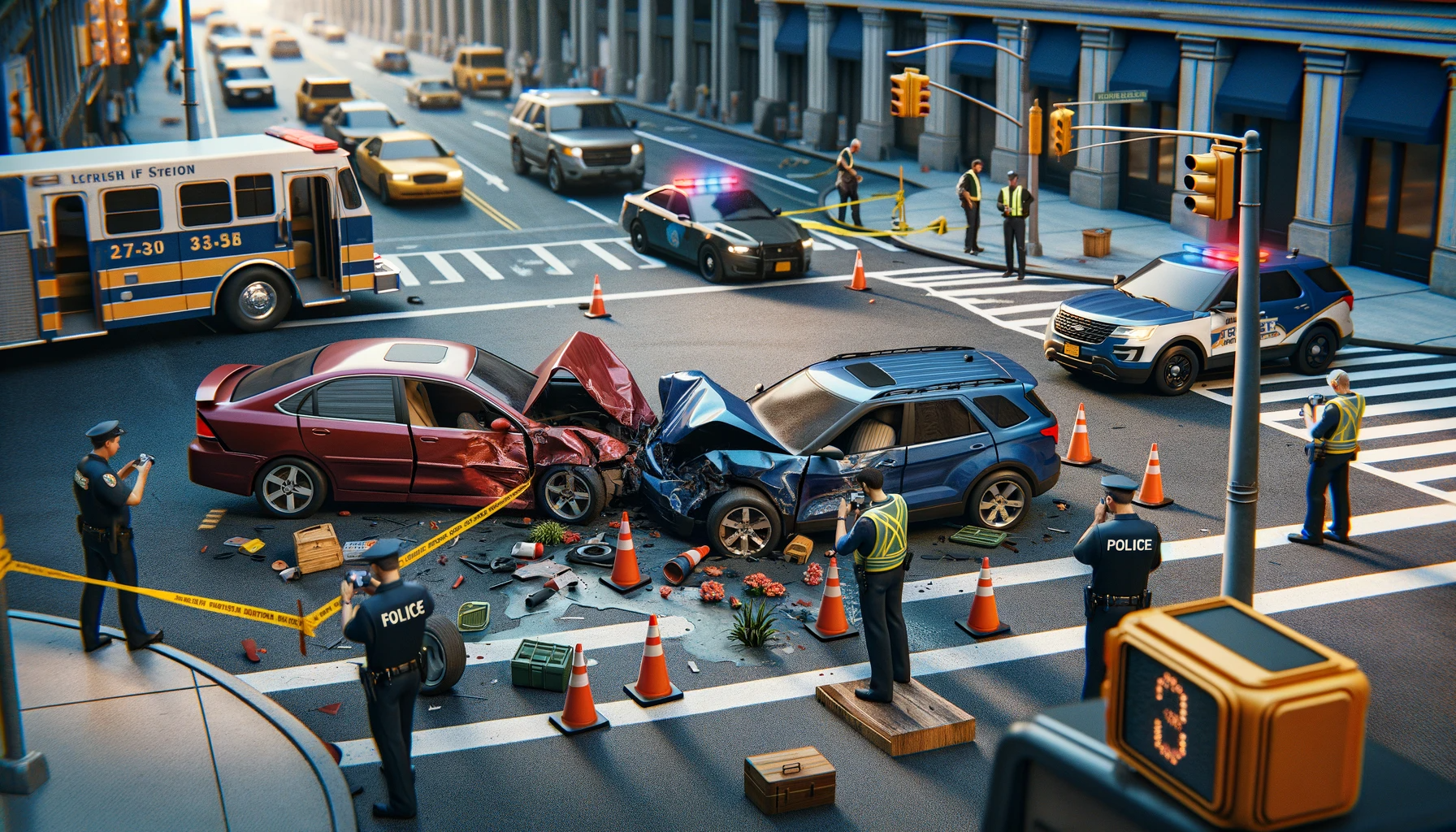Introduction
Car accidents are sudden and often traumatic events that can alter lives in an instant, bringing physical injuries, emotional distress, and financial difficulties. Unfortunately, there’s also a wealth of myths and misconceptions surrounding
car accident cases that can prevent victims from seeking the help they need. Believing these myths may lead individuals to miss out on critical legal protections or financial compensation. By understanding the realities of car accidents and familiarizing yourself with the legal resources available, you can make informed decisions and take the right steps toward recovery.
The Impact of Car Accidents
The consequences of a
car accident can extend far beyond the initial physical injuries. Victims often face emotional trauma, such as anxiety or PTSD, and financial burdens stemming from medical bills, rehabilitation costs, and lost income due to time off work. For some, these challenges can also strain relationships and family life, adding further stress to an already difficult situation. Knowing your legal options after an accident is crucial for easing these burdens. Legal support can help secure compensation that covers both immediate and long-term needs, allowing you to focus on your recovery without the added worry of financial strain.

Why Understanding Legal Resources is Essential
Whether a car accident is minor or severe, knowing your rights and legal options can dramatically impact how you manage the aftermath. Legal resources not only provide insight into the types of compensation available—such as medical expenses, lost wages, and pain and suffering—but also guide you through the often complex process of dealing with insurance companies, filing claims, and understanding the legal implications of your accident. By consulting a knowledgeable attorney, you gain an advocate who can help you navigate these challenges, ensuring that you don’t settle for less than what you deserve.
Debunking Common Myths About Car Accidents
Misconceptions about
car accident cases can lead to poor decisions and missed opportunities for compensation. Here are some of the most pervasive myths and the truths behind them:
Myth #1: “If the Accident Wasn’t My Fault, I Don’t Need a Lawyer.”
Many people assume that if they’re not at fault, the process will be straightforward, and they won’t need legal assistance. However, even in clear-cut cases, insurance companies may still try to dispute your claim or minimize your compensation. A lawyer can help by gathering evidence, negotiating with insurers, and protecting you from counterclaims or unfair practices that could impact your recovery. Having legal representation ensures that you’re fully prepared to handle any complications that arise, maximizing your chances of a fair outcome.
Myth #2: “Only Severe Accidents Need Legal Advice.”
Injuries aren’t always apparent immediately after an accident. Some conditions, like whiplash or internal injuries, may not present symptoms until days or even weeks later. Even minor collisions can lead to unforeseen complications and financial losses, especially if injuries require ongoing treatment or time off work. Seeking legal advice ensures that these potential issues are addressed, protecting you from out-of-pocket expenses and helping you secure compensation for any long-term effects that might arise.
Myth #3: “Insurance Will Cover Everything.”
While insurance plays a critical role in compensating for damages, it doesn’t always cover all costs associated with an accident. Insurers may exclude certain expenses, like lost wages, future medical expenses, or pain and suffering. Additionally, they might offer settlements that don’t reflect the full extent of your losses. An attorney can help you identify these gaps and pursue additional compensation where applicable, ensuring that you receive the financial support needed for a full recovery.
Myth #4: “I Should Wait Before Filing a Claim.”
Time is critical after a
car accident. Delaying a claim can jeopardize your ability to gather evidence, such as witness statements and accident scene documentation, which may weaken your case. Additionally, many states have strict deadlines (statutes of limitations) for filing
personal injury claims. Consulting a lawyer early on allows you to take prompt action, preserving essential evidence and meeting all necessary deadlines to strengthen your case.
Myth #5: “Police Reports Guarantee I’ll Win My Case.”
While a police report is an important piece of evidence, it doesn’t automatically determine the outcome of your case. Police reports are not infallible, and other evidence, such as medical records, photos, and witness testimonies, will also play a crucial role in proving fault and justifying your compensation. Your lawyer will use these multiple sources of evidence to build a robust case and address any potential discrepancies in the police report.
Myth #6: “Personal Injury Claims Are Always Resolved Quickly.”
Personal injury claims can take time to resolve, as insurance companies often conduct thorough investigations to verify claims. Legal procedures, such as discovery and negotiations, may also prolong the process. Setting realistic expectations and remaining patient can help you navigate the process more effectively. A lawyer will help keep your case on track and guide you through each phase, ensuring you’re informed and prepared for any delays that arise.
Myth #7: “I’m Automatically Entitled to Compensation.”
Compensation isn’t guaranteed in
car accident cases. To receive a settlement, you must prove that the other party was negligent and that this negligence directly caused your injuries and losses. Documentation, witness statements, and expert testimonies are essential in establishing this link. Having a lawyer to gather and present this evidence strengthens your case and increases the likelihood of a favorable outcome.
Myth #8: “It’s Better to Handle the Case Alone.”
The legal process can be complex, and attempting to handle a
car accident case without a lawyer can be risky. Without legal expertise, you may miss critical details, undervalue your claim, or fall victim to unfair insurance tactics. A professional lawyer brings the experience needed to handle negotiations, gather evidence, and advocate for your rights, helping you avoid mistakes that could jeopardize your case.
Myth #9: “I Can’t Get Compensation if I Share Some Blame.”
In many states, the concept of comparative negligence allows individuals to receive compensation even if they are partially at fault. Depending on the state’s laws, your compensation may be reduced based on your percentage of fault. Consulting a lawyer will help you understand how shared responsibility affects your case and guide you on strategies to minimize your liability.
Myth #10: “Legal Resources Are Expensive and Inaccessible.”
The cost of legal services often deters individuals from seeking help, but many attorneys offer free initial consultations and work on a contingency basis, meaning they only get paid if you win your case. This fee structure makes legal support accessible, even for those facing financial challenges after an accident. Knowing that legal assistance is within reach empowers accident victims to pursue their rights without the worry of upfront costs.
Knowing what actions to take immediately following a
car accident can help protect your safety, secure important evidence, and strengthen your case:
- Ensure Safety – If possible, move your vehicle to a safe location, check for injuries, and avoid further harm.
- Call for Help – Contact emergency services to report the accident. Police and medical personnel can provide immediate assistance and create official records.
- Collect Evidence – Take photos of the accident scene, vehicle damage, and any visible injuries. Gather contact information from witnesses and exchange details with the other driver.
- Seek Medical Attention – Even if you feel fine, getting checked by a healthcare provider can uncover injuries that may not be immediately apparent.
- Contact Your Insurance – Notify your insurance company as soon as possible to begin the claims process.
How to Choose the Right Legal Representation
Selecting the right lawyer for your case is critical. Look for an attorney with extensive experience in
personal injury and car accident cases, as well as a proven track record of success. A competent lawyer will have a transparent fee structure, provide a clear explanation of your options, and communicate effectively. During the initial consultation, don’t hesitate to ask questions about their experience, case handling, and expectations. Finding a lawyer you trust and feel comfortable working with can make a substantial difference in your case outcome.

Benefits of Having Legal Support in Car Accident Cases
A skilled lawyer not only handles the technical aspects of your case—such as paperwork, evidence collection, and negotiations—but also provides the peace of mind needed to focus on recovery. With an experienced attorney, you’ll have someone to advocate for your rights, ensure you receive fair compensation, and guide you through each step of the legal process. Legal representation enhances your chances of a successful outcome and allows you to prioritize your well-being without the added stress of navigating the legal system alone.
Conclusion
Facing the aftermath of a
car accident can be overwhelming, especially when misinformation and myths cloud your judgment. By understanding the facts, debunking common myths, and knowing your legal resources, you’re better equipped to make informed decisions that benefit your recovery and compensation. Remember, having the right legal guidance can make a significant difference in your journey toward justice and recovery, ensuring you have the support needed to rebuild your life after an accident.
Look for an attorney who has the right legal resources for your legal needs.
Contact us here on the
Warmuth Law website or through our hotline 888-517-9888.
Frequently Asked Questions (FAQ's)
1. What if the accident was partly my fault?
You may still be eligible for compensation based on comparative negligence, which allows for shared responsibility in many states.
2. How quickly should I file an injury claim?
It’s best to file as soon as possible to ensure evidence is fresh and legal timelines are met.
3. Do I need a lawyer if the accident was minor?
Consulting a lawyer is recommended even in minor accidents, as injuries or legal implications may arise later.
4. Will my insurance rates go up if I file a claim?
Yes, filing a claim can potentially increase your premiums, but it’s essential to weigh this against the benefits of receiving coverage.
5. Can I switch lawyers during a car accident case?
Yes, you have the right to change lawyers if you feel your needs aren’t being met, although it may impact your case’s timeline.













